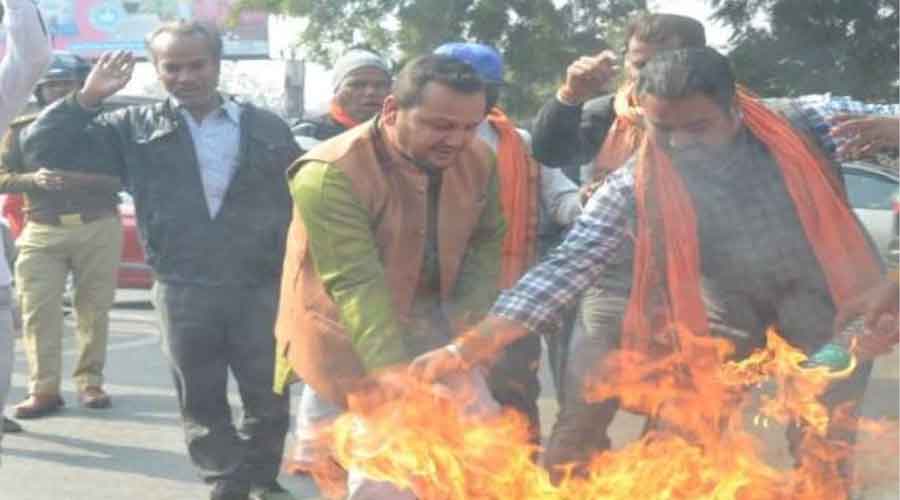India, as the adage goes, is a land of contradictions. But the inconsistencies are not always benign: some of them are the outcomes of cynical politics. The evidence is damning. Hindutva’s vigilantes think nothing of disturbing Christmas celebrations — bullying children, disrupting prayer meetings, vandalizing churches — in a nation whose prime minister sends out greetings on the auspicious day. Venom is spewed from a conclave of holy men — urging citizens, including members of the armed forces, to participate in a genocide against Muslim brethren — even though Narendra Modi is, supposedly, a believer in the slogan of inclusive governance and the country is constitutionally mandated to honour secularism.
Two factors seem to be fundamental to this orchestrated dissemination of hatred. The first one is obvious. Mr Modi’s government has been repeatedly accused of encouraging the communalization of the polity to fulfil its ideological goal of transforming India into a majoritarian republic. What is facilitating this sinister attempt of altering the nation’s character is inertia. India has
several laws in place to leach the poison. Section 153A penalizes speeches, remarks or acts that have the potential to disrupt public order or promote enmity among communities. The electoral model code of conduct has regulatory provisions too. Yet, they are rarely applied against the government’s agents provocateurs — no immediate action was reported against the organizers of the toxic event in Haridwar; some of Mr Modi’s peers have also got away with their offensive remarks as a result of this institutional pusillanimity. Another factor, arguably, is energizing this far-right assault on India’s precious pluralism: the ambiguity in the definition of certain concepts in the law book. The Union home ministry, for instance, recently informed Parliament that ‘anti-national’, an expression that entered the constitutional vocabulary during the Emergency and was dropped after it, has eluded precise definition in the statutes. This ambiguity has enabled governments — particularly Mr Modi’s dispensation — to weaponize such terms in order to target critics and dissenters. The pushback against vicious polarization must consider implementing existing deterrents — legal, political and civil — as well as defining nebulous concepts that are being used to feed the fire.











